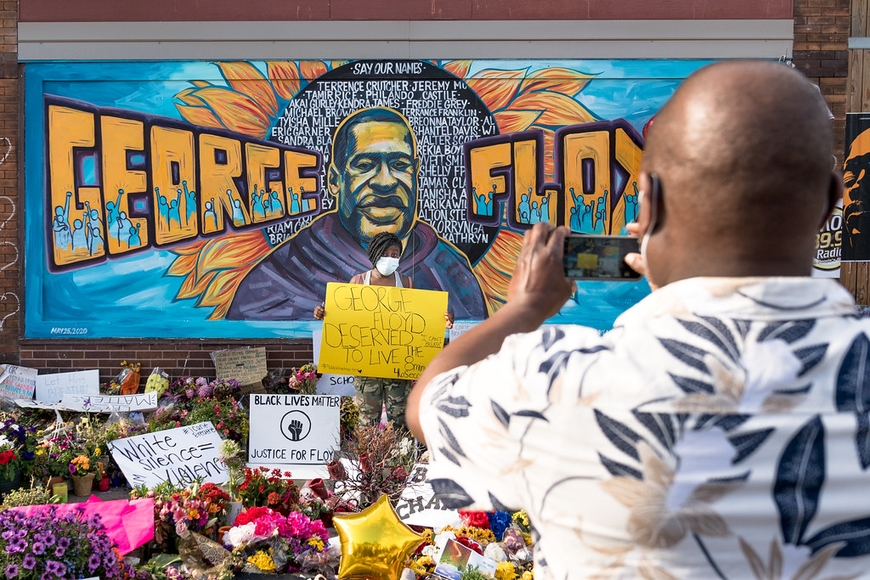MHR Student Researches Trends of Violence in Minneapolis
Bailey Sutter (MHR '21) is a second-year Master of Human Rights Student with a concentration in Education Justice. This summer, Bailey worked with fellow grad students to study the state of violence in Minneapolis following the murder of George Floyd. To read about her work and the experiences she had, read our interview with Bailey below.
HRP: What is your concentration in the Master of Human Rights Program?
Bailey Sutter (BS): Education justice
HRP: Please describe your summer internship or project and the work that you did during this time.
BS: Raven Ziegler, a recent grad, reached out to a group of students and asked if we would be interested in tracking state violence following the murder of George Floyd. This summer, I, along with the other members of the group, have been figuring out the logistical work involved in such research. We are particularly focused on respecting people’s privacy as they recount their interactions with the Minneapolis Police Department (MPD).
HRP: What made you choose this internship specifically? How does the work you were doing this summer relate to your area of study at UMN?
BS: I decided to take part in this project due to its timely and important nature. I also wanted to take advantage of the opportunity to make a difference in the current functioning of law enforcement and perceptions of violence. This project specifically relates to my expertise as I do some work on the school to prison pipeline, which heavily intersects with police in schools.
Minneapolis Public Schools voted to remove MPD from its schools, but are now hiring for a position that is very similar. I believe that holding officials and institutions accountable and protecting our collective right to protest institutions that are seen as unjust is of utmost importance.
HRP: How will this experience help or inform your career path or professional interests?
BS: I think that, regardless of the field in which I end up, knowing how to respectfully communicate with folks who have experienced traumatic things will be a beneficial skill.



